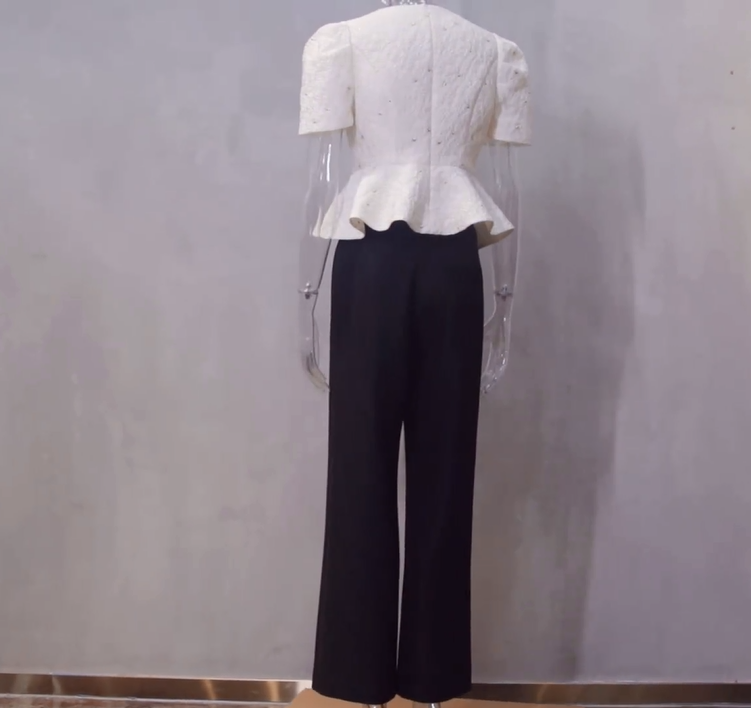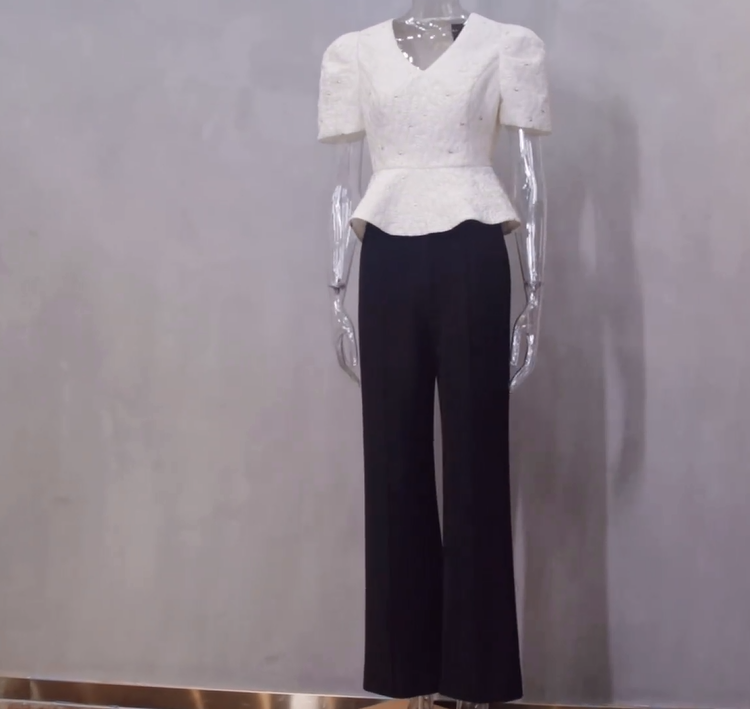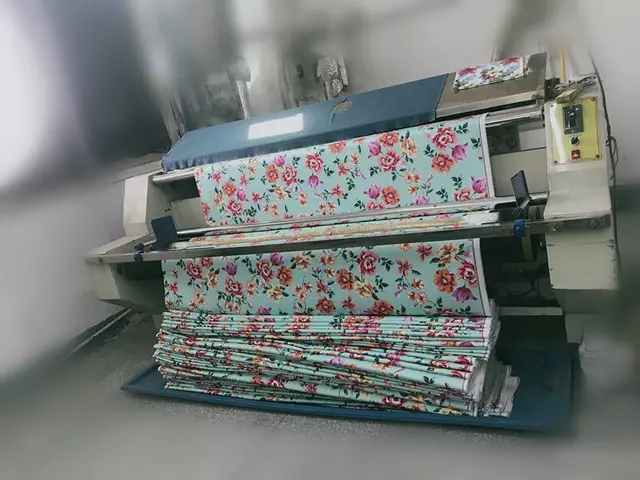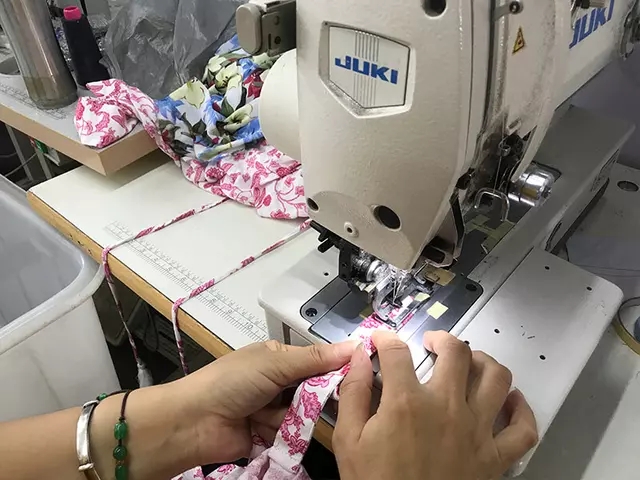| Label | Round collar | short sleeve | ruffles |
| OEM | white | logo | embroidery |
| Material | Spandex/cotton | ||
Size(custom) | M-5XL | ||
| SEND AN INQUIRY ---Get 2022 new catalog and quote | |||


Various on-site tests for Auschalink have been performed to assess its compliance.
They include color shading, seam quality, measurements, labeling, and packaging.




Twin-needle machine




Automatic keyhole machine




◆ Buyer-fabric and Accessaryric
1) find suitable fabric and accessary supplier in time during new style development
2) manage fabric and accessary supplier: finding,evaluation and training.set up supplier records and score regularly.
3) cooperate with sales and customer schedule requirement, follow up and monitor sample and production finihsed in time.
4) responsible to controll fabric and accessary quality, checking and verify color and other quality requirement.
5) research and record all main fabric and accessary price.with good negotiate skill, get lower sourcing price.
6) set up garment and material cost analysis, sourcing strategy , mkae sure get lower cost of material and garment.improve competive from cost side.
7) strong team working ability and leadership skill.excellent communication and problem solve ability.
8) rich experience of garment fabric, accessary develop/manufacture, professional at thisindustry.with rich supplier base.
9) familar with all kinds of weave and knit fabric. well know price of different fabric and it's manufacture technique.
COTTON VS RAYON: WHICH IS BETTER FOR SHEETS?
Rayon sheets made from bamboo are breathable, thermoregulating, hypoallergenic, moisture-wicking, soft, and is bacteria and odor resistant. Impressive, isn't it? Bamboo rayon sheets are made from bamboo fibers and they are one of the most popular sheets on the market.
Cotton sheets, especially Egyptian cotton sheets, are also breathable, soft, and of the highest quality. Unlike bamboo sheets, the quality of cotton sheets depends on the thread count. The higher the thread count, the higher it's quality and vice versa. Both sheets are durable and will last up to 15 years. However, cotton sheets absorb a lot of sweat and oil from the body. This means it's likely to discolor over time.
Bamboo rayon sheets are highly sorted after for their hypoallergenic properties. This quality makes it a good fit for people with sensitive skins. Its moisture-wicking abilities also mean it can prevent bacteria growth on your beddings which will, in turn, dispel odors.
Cotton and rayon are two great fibers for creating quality sheets, but rayon is slightly better. Hence, this round goes to rayon.
COTTON VS RAYON: FABRIC BLENDS
Cotton can blend well with other fibers lending it comfort, softness, and breathability. With those positive properties to offer, cotton is commonly blended with other fibers in the textile industry.
On the other hand, rayon can also blend with other fibers although not quite as well as cotton. When making a rayon blend, it's important to use around 30% rayon or lower. This allows the fabric blend to bring the positive properties of rayon without retaining much of its negative properties.
That said, you can blend either cotton or rayon with other fibers. Hence, I'll call this round a tie.
COTTON VS RAYON - IN CONCLUSION: FINAL VERDICT
Cotton and rayon are two formidable fibers that are used to make apparel of different types. They both have their strong suits and weaknesses as has been highlighted above.
We've had 7 rounds of comparison according to their properties with 3 rounds going to cotton, 2 going to rayon, and 2 ending in a tie. This indicates that both fibers can hold their own and have a lot of positive properties to offer.
However, cotton is the more popular fiber and from the comparison above, it's clear that it's better than rayon albeit not significantly. It's not a landslide victory, but cotton is the more superior fiber.